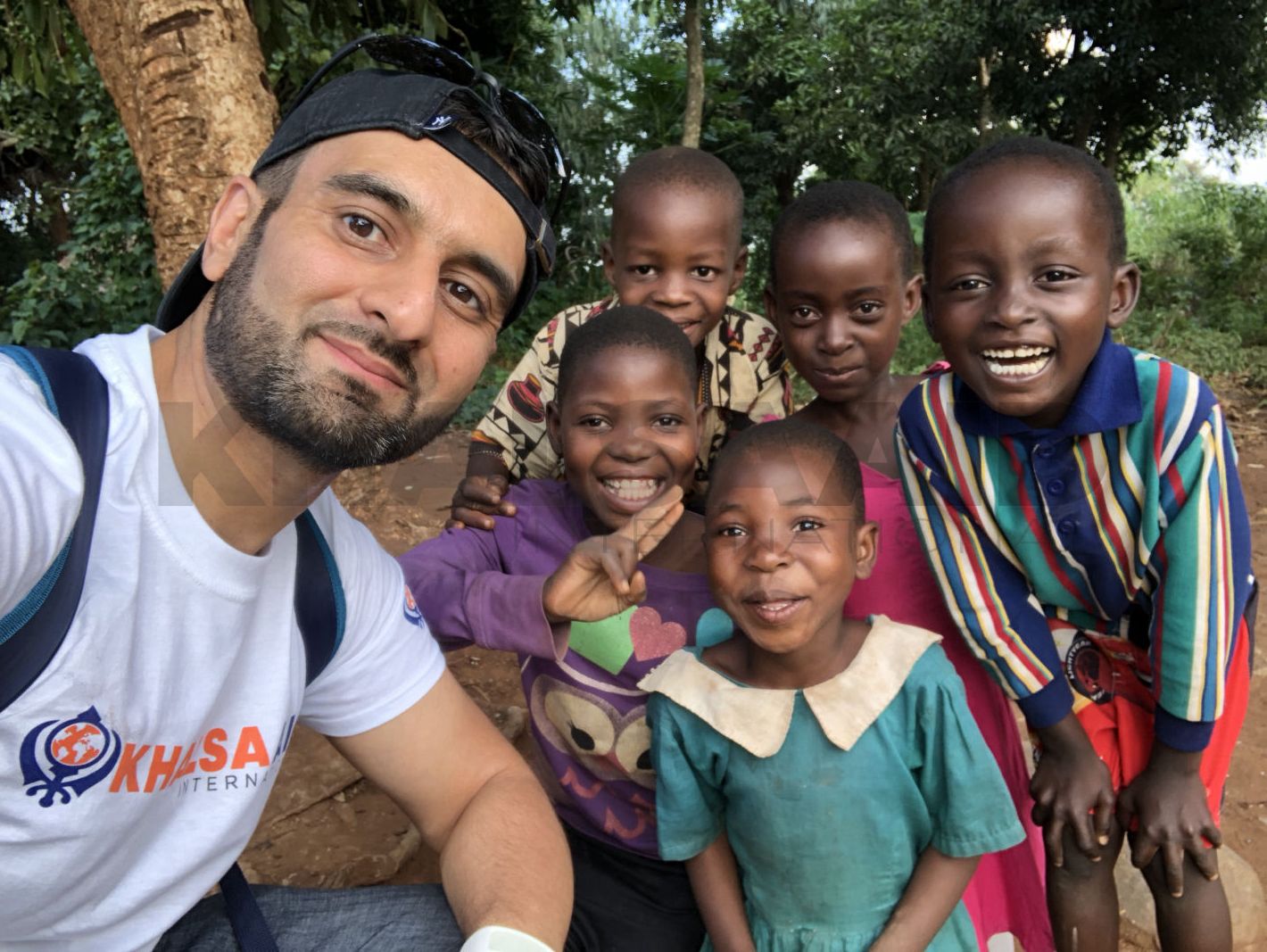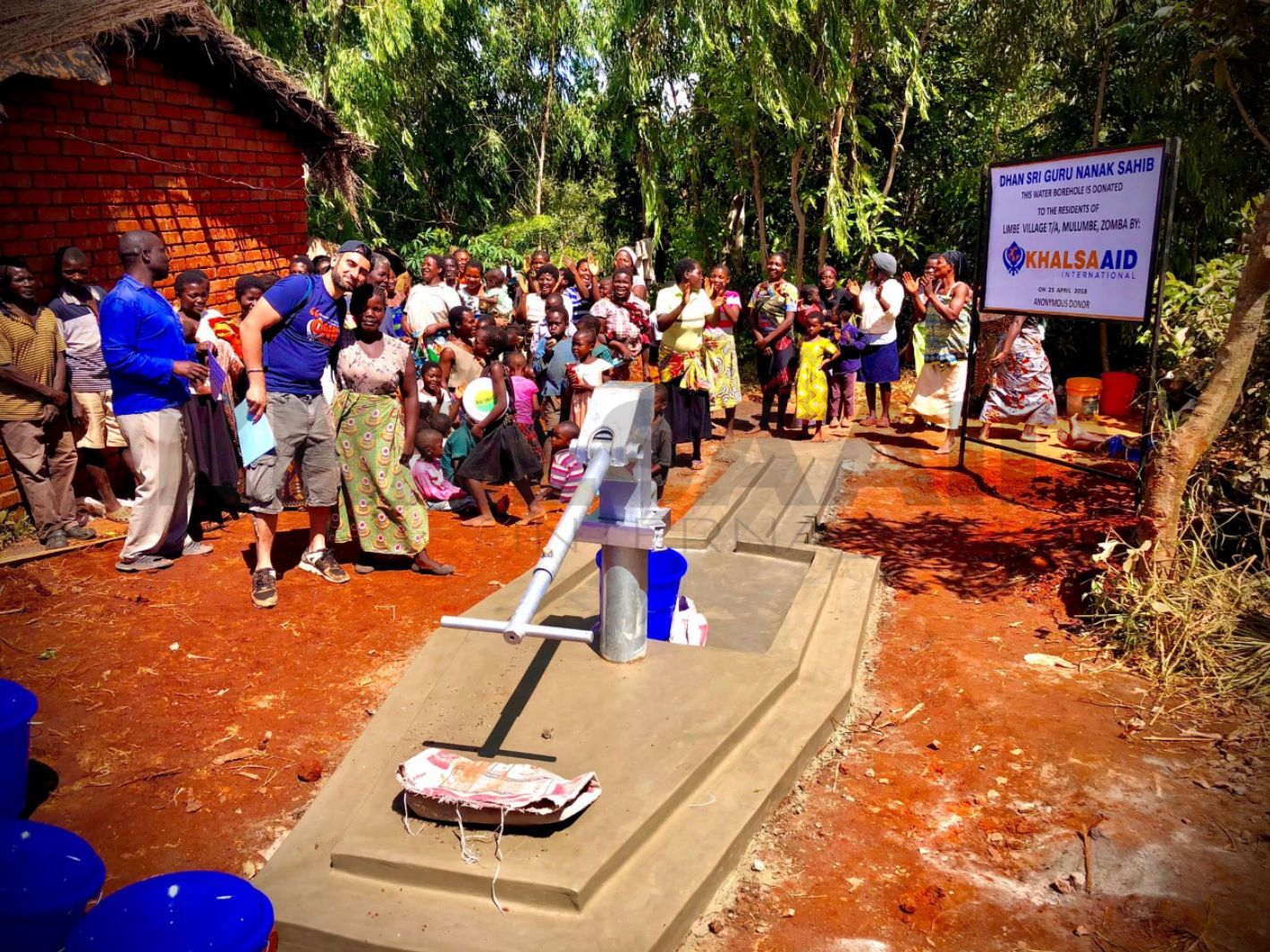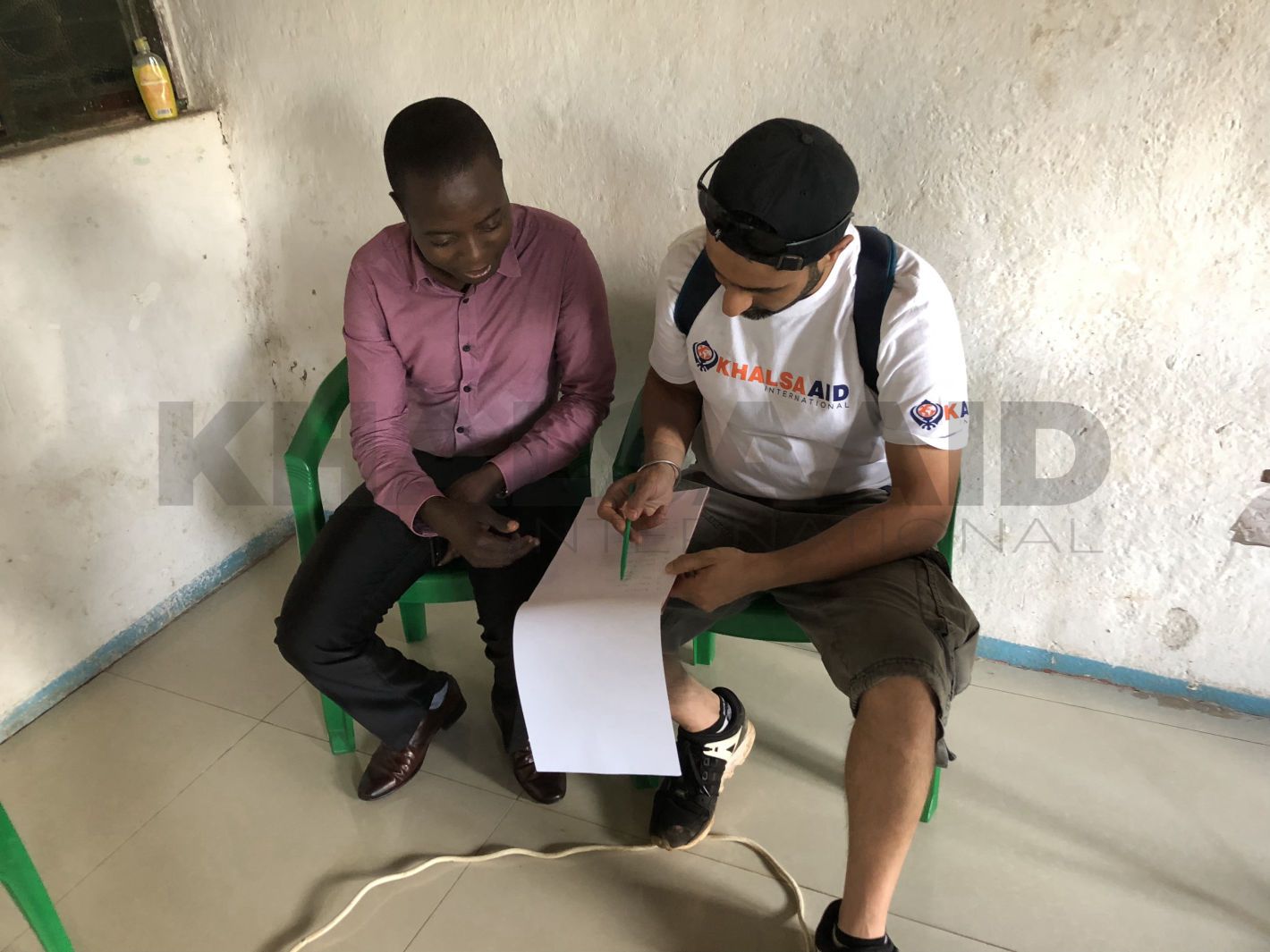21 Oct 2024 | Updated 11 Dec 2024
Khalsa Aid International has worked on a number of projects to deliver water; an essential requirement that presents a life-or-death challenge for millions of people living in extreme poverty in rural Malawi.
Khalsa Aid International has worked on a number of projects to deliver water; an essential requirement that presents a life-or-death challenge for millions of people living in extreme poverty in rural Malawi.
Humanitarian relief charity, Khalsa Aid International visited Malawi to ensure the completion of water pump installation in three different villages.

In each village, the Khalsa Aid team met with the local social worker, being introduced to the Chief who gave a tour of the village and demonstrated the current situation. On average, those in each village had to travel up to 1km to the nearest water source. Often, this involved trekking over challenging terrain while carrying a heavy bucket full of water. The water that could be collected was often unsafe for drinking, with cholera and other diseases being common, due to unsafe water, sanitation and hygiene in the rural areas.

With help from the village Water Point Committee, Khalsa Aid worked to pick the specific position in each village that the pump would be built, instructing the drilling contractors to begin work.
Engaging with the villagers as contractors completed the drilling, the Khalsa Aid team were delighted to see the happiness on villagers’ faces as water spouted up for the first time. These 45-metre deep bore holes will have a dramatic, ongoing impact on these people’s lives, benefiting generations to come.

Khalsa Aid also support a local orphanage, purchasing and delivering items including stationery, cooking supplies, cleaning products, blankets and treats for children. An order for 20 bunk beds was also made, as well as Khalsa Aid agreeing to paint and redecorate the orphanage.
Upon completion of each water pump, a concrete platform was built, with opening and handover ceremonies taking place. The villagers danced, sang songs and shared their gratitude. Working with officials, Khalsa Aid ran workshops to educate villagers on improving hygiene and sanitation practices. In addition to this, they were taught how to operate water pumps, and were given spare parts and maintenance instructions, ensuring it would continue to work. This project was designed to achieve lasting change and help people to live happy, safer lives.